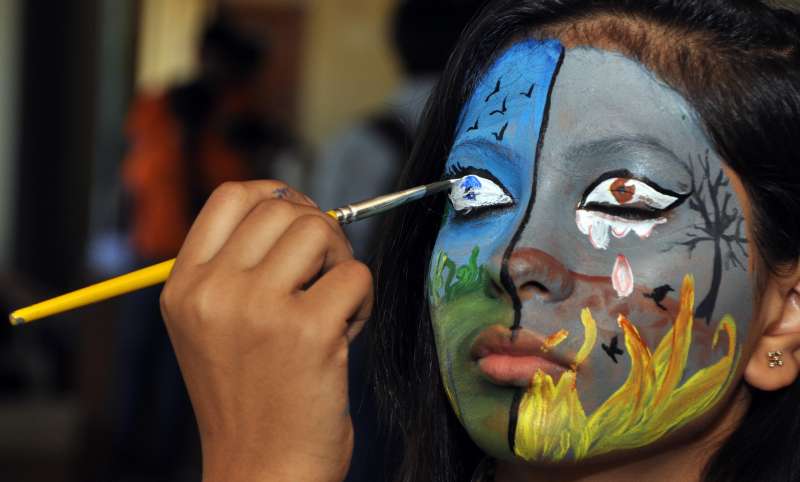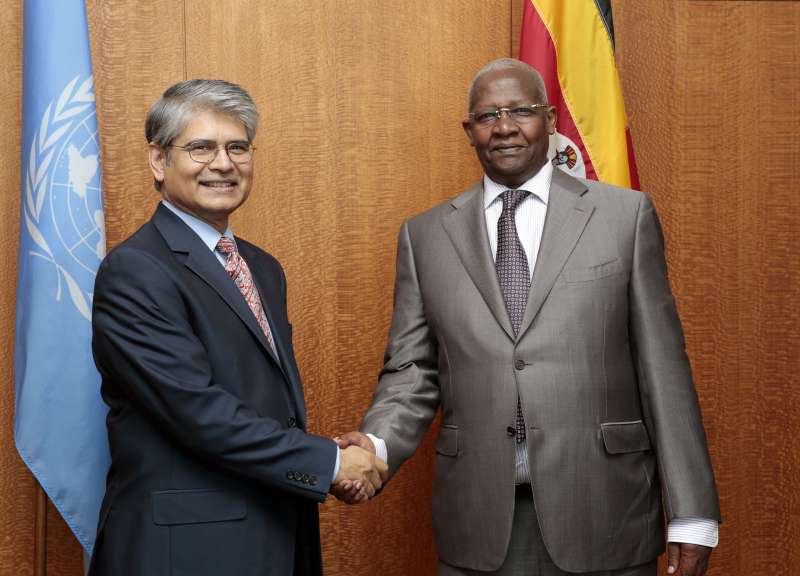India adds spiritual dimension to ‘Act East’ policy. India’s Permanent Representative Asoke Kumar Mukerji said at the International Day of Vesak celebration Friday that India “sought to use the ancient links forged by our common Buddhist heritage between different countries in Asia as part of our foreign policy outreach, seeing the world as one family, or “Vasudhaiva Kutumbakam”….reports Asian Lite News
 Celebration of the Buddhist festival of Vesak at UN brought to focus India’s “Act East” with a spiritual dimension based on the common heritage that spans Asia, linking nations as diverse as India and China.
Celebration of the Buddhist festival of Vesak at UN brought to focus India’s “Act East” with a spiritual dimension based on the common heritage that spans Asia, linking nations as diverse as India and China.
India’s Permanent Representative Asoke Kumar Mukerji said at the International Day of Vesak celebration on Friday that India “sought to use the ancient links forged by our common Buddhist heritage between different countries in Asia as part of our foreign policy outreach, seeing the world as one family, or “Vasudhaiva Kutumbakam”.
The Indian mission made a slide presentation of the links forged by Buddhism featuring Prime Minister Narendra Modi’s visits to the religion’s shrines in Sri Lanka, Japan, Mongolia and China and monuments in India and Kazakhstan on the Silk Road. Afterward, Mukerji said, “As you can see, we are indeed actively linked by our common Buddhist heritage.”
“The core of the teachings of Lord Buddha, especially ahimsa or non-violence, have become an integral part of India’s political philosophy,” Mukerji said.
Secretary-General Ban Ki-Moon’s Vesak message also referred to the political relevance of Buddha’s message: “Buddha’s observation that all peoples are interconnected reminds us of the importance of uniting as one human family resolved to address our shared struggles based on common values.”
Vesak, which commemorates the birth, enlightenment and death of Buddha, was observed in some Asia countries on June 1, although in India it was celebrated as Buddha Purnima with the official holiday was on May 4.

Adding to the ecumenical flavor of the celebration, Omani Ambassador Lyutha Al-Mughairy said Vesak “allows us to recall the importance of respect for religious and cultural diversity and the need for a peaceful and harmonious world.” She was speaking on behalf of General Assembly President Sam Kutesa,
The respect for religious diversity she referred was reflected in December’s General Assembly resolution to make from next year the Vesak feast a day when no official UN meetings will be held, a recognition short of a general holiday because the headquarters will stay open. This came about as a result of diplomatic efforts by India in conjunction with nations with major Buddhist populations.
The same resolution also gave Deepavali, Gurpurab and the Jewish sacred day, Yom Kippur, the status of days with no official meeting starting next year, widening slightly the recognition of sacred days of non-Christian and non-Muslim religions. Only two religious days each of Christianity and Islam are official holidays.